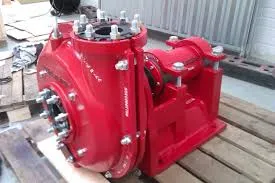Hindi
- Afrikaans
- Albanian
- Amharic
- Arabic
- Armenian
- Azerbaijani
- Basque
- Belarusian
- Bengali
- Bosnian
- Bulgarian
- Catalan
- Cebuano
- Corsican
- Croatian
- Czech
- Danish
- Dutch
- English
- Esperanto
- Estonian
- Finnish
- French
- Frisian
- Galician
- Georgian
- German
- Greek
- Gujarati
- Haitian Creole
- hausa
- hawaiian
- Hebrew
- Hindi
- Miao
- Hungarian
- Icelandic
- igbo
- Indonesian
- irish
- Italian
- Japanese
- Javanese
- Kannada
- kazakh
- Khmer
- Rwandese
- Korean
- Kurdish
- Kyrgyz
- Lao
- Latin
- Latvian
- Lithuanian
- Luxembourgish
- Macedonian
- Malgashi
- Malay
- Malayalam
- Maltese
- Maori
- Marathi
- Mongolian
- Myanmar
- Nepali
- Norwegian
- Norwegian
- Occitan
- Pashto
- Persian
- Polish
- Portuguese
- Punjabi
- Romanian
- Russian
- Samoan
- Scottish Gaelic
- Serbian
- Sesotho
- Shona
- Sindhi
- Sinhala
- Slovak
- Slovenian
- Somali
- Spanish
- Sundanese
- Swahili
- Swedish
- Tagalog
- Tajik
- Tamil
- Tatar
- Telugu
- Thai
- Turkish
- Turkmen
- Ukrainian
- Urdu
- Uighur
- Uzbek
- Vietnamese
- Welsh
- Bantu
- Yiddish
- Yoruba
- Zulu
Telephone: +86 13120555503
Email: frank@cypump.com
सितम्बर . 30, 2024 10:02 Back to list
Choosing the Right Submersible Pump for Effective Sewage Management Solutions
Understanding Sewage Submersible Pumps A Vital Component in Wastewater Management
Sewage submersible pumps play a crucial role in modern wastewater management systems. They are designed to handle the transportation of sewage and wastewater from residential, commercial, and industrial facilities to treatment plants. By understanding their functionality, advantages, and applications, we can appreciate their importance in maintaining public health and environmental sustainability.
What is a Sewage Submersible Pump?
A sewage submersible pump is a type of pump that is specifically designed to operate while submerged in sewage or wastewater. Unlike centrifugal pumps that must be placed above the fluid they are intended to move, submersible pumps are installed directly in the sewage, allowing for efficient removal of waste materials. These pumps are typically constructed with durable materials that can withstand harsh conditions, such as corrosive liquids and solid waste.
The primary components of a submersible sewage pump include a motor, impeller, volute, and housing. The motor drives the impeller, which generates the suction necessary to lift the sewage and pump it through the discharge pipe. The entire assembly is enclosed in a sealed housing to prevent water ingress and protect the motor from damage.
Advantages of Submersible Pumps
1. Space Efficiency One of the key advantages of submersible pumps is their compact design. They can fit into smaller spaces compared to other pump types, making them ideal for installations in basements, pits, or underground locations.
2. Lower Noise Levels Since submersible pumps are submerged in water, they operate quieter than surface pumps. This is particularly beneficial in residential areas where noise pollution can be a concern.
3. High Efficiency Submersible sewage pumps are engineered for high efficiency, particularly when handling mixed liquids with solids. They can easily pump wastewater containing filth, materials, and even small solids without clogging.
4. Reduced Risk of Cavitation Cavitation occurs when the pressure in the pump drops below the vapor pressure of the liquid, leading to bubbles that can cause damage. Submersible pumps minimize this risk because they are situated beneath the surface of the fluid.
sewage submersible pump

5. Versatility These pumps can be used in a variety of applications beyond basic sewage management. They are effective in pumping stormwater, floodwater, and even certain industrial processes, making them versatile tools in both residential and commercial settings.
Applications of Sewage Submersible Pumps
Sewage submersible pumps have a broad range of applications, including
- Residential Use In homes, these pumps are often utilized in basement sump pits to manage groundwater and prevent flooding. They are also used in septic systems to pump effluent to drain fields.
- Municipal Infrastructure Many cities and towns use submersible pumps in their sewer systems to ensure the continuous flow of sewage to treatment facilities, thereby protecting public health and preventing environmental contamination.
- Industrial Applications Factories and industrial plants frequently use submersible pumps to manage wastewater generated during manufacturing processes. These pumps handle various liquids, from chemical effluents to sludge.
- Construction Sites During construction, submersible pumps are essential for dewatering sites to keep them dry, ensuring worker safety and project timelines are adhered to.
Conclusion
Sewage submersible pumps are indispensable in managing wastewater effectively and efficiently. Their robust design, ease of installation, and high-capacity performance make them ideal for a range of uses, from domestic to industrial applications. As urbanization continues to increase and environmental regulations become more stringent, the demand for reliable wastewater management solutions will only grow, further cementing the role of submersible pumps in infrastructure development. By investing in advanced sewage pumping technologies, we can ensure cleaner water systems, protect public health, and promote environmental sustainability for future generations.
-
High-Performance Air Pumps for Sand & Gravel | Efficient Transport
NewsAug.03,2025
-
ISG Series Vertical Pipeline Pump - Chi Yuan Pumps Co., LTD.|Energy Efficiency, Corrosion Resistance
NewsAug.03,2025
-
ISG Series Pipeline Pump - Chi Yuan Pumps | Energy Efficiency&Compact Design
NewsAug.03,2025
-
ISG Series Vertical Pipeline Pump - Chi Yuan Pumps Co., LTD.|High Efficiency, Low Noise, Durable
NewsAug.02,2025
-
ISG Series Vertical Pipeline Pump - Chi Yuan Pumps | High Efficiency, Low Noise
NewsAug.02,2025
-
ISG Series Vertical Pipeline Pump- Chi Yuan Pumps Co., LTD.|High Efficiency&Compact Design
NewsAug.02,2025










